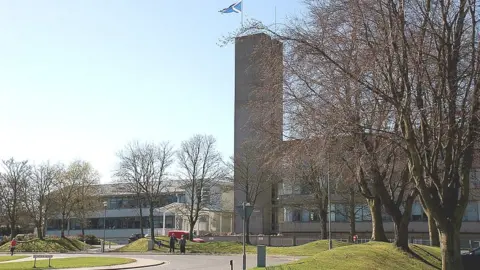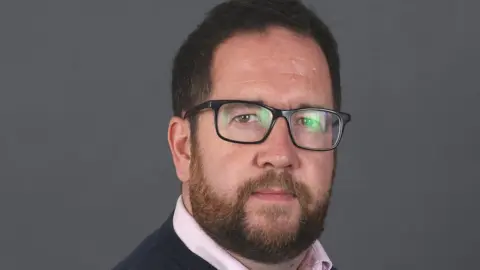Scottish Borders Council proposes 5% tax increase
 Jim Barton
Jim BartonA council tax rise of 5% is being proposed on properties in the Scottish Borders.
The local authority said the increase was half the rate of inflation and would help to protect services.
Council leader Euan Jardine said it had been "very difficult" to balance the financial pressure on households with the need to bridge a funding gap.
The proposed 5% rise would see payments on a band D property rise by just under £65 a year.
The proposals - agreed by a cross-party group of councillors - will be presented to the local authority at a meeting on 23 February.
They are still working on overall budget plans but have achieved a consensus on the council tax rate.
Mr Jardine said the move was necessary to bridge a financial gap - estimated at about £7m - between the money available and the amount needed to "maintain services and invest in key projects".
"The impact of this increase on a household in an average band D property will be £1.24 a week," he said.
He added that the rise would help protect education, social work and the care and support of vulnerable people in the region and allow investment in schools and roads.
Councils across Scotland are currently formulating their spending plans with Aberdeenshire the first to agree a 4% increase in tax this week.
 SBC
SBCMark Rowley, executive member for service delivery and transformation, said he believed the increase in the Borders would be lower than in other parts of the country.
"It really is with a heavy heart that we are proposing this increase, but the reality is that without the additional income this will generate then we would have been left with the prospect of very damaging cuts to frontline services with no funding to support community priorities," he said.
The council is also looking at restructuring its debts associated with Public Private Partnership (PPP) contracts on schools across the region.
It said a change allowed by the Scottish government could help to free up funding over the next 25 years to help narrow forecast financial gaps.
